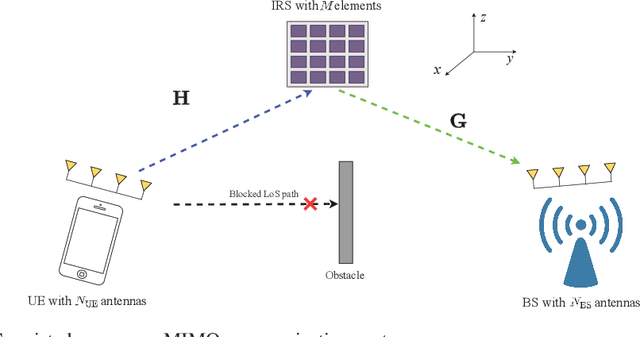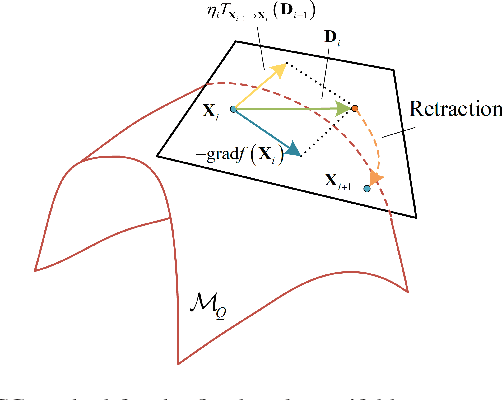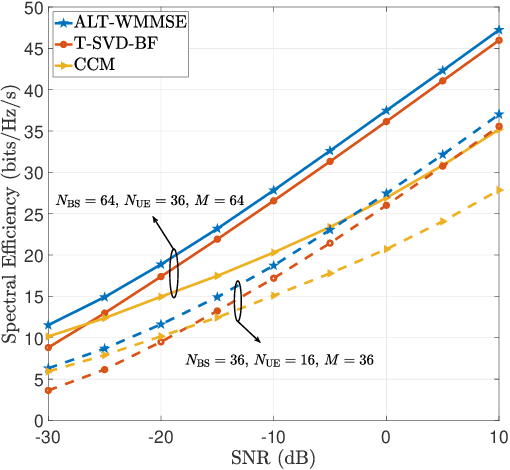Channel Estimation for IRS-Assisted Millimeter-Wave MIMO Systems: Sparsity-Inspired Approaches
Paper and Code
Jul 24, 2021



Due to their ability to create favorable line-of-sight (LoS) propagation environments, intelligent reflecting surfaces (IRSs) are regarded as promising enablers for future millimeter-wave (mm-wave) wireless communication. In this paper, we investigate channel estimation for IRS-assisted mm-wave multiple-input multiple-output (MIMO) {\color{black}wireles}s systems. By leveraging the sparsity of mm-wave channels in the angular domain, we formulate the channel estimation problem as an $\ell_1$-norm regularized optimization problem with fixed-rank constraints. To tackle the non-convexity of the formulated problem, an efficient algorithm is proposed by capitalizing on alternating minimization and manifold optimization (MO), which yields a locally optimal solution. To further reduce the computational complexity of the estimation algorithm, we propose a compressive sensing- (CS-) based channel estimation approach. In particular, a three-stage estimation protocol is put forward where the subproblem in each stage can be solved via low-complexity CS methods. Furthermore, based on the acquired channel state information (CSI) of the cascaded channel, we design a passive beamforming algorithm for maximization of the spectral efficiency. Simulation results reveal that the proposed MO-based estimation (MO-EST) and beamforming algorithms significantly outperform two benchmark schemes while the CS-based estimation (CS-EST) algorithm strikes a balance between performance and complexity. In addition, we demonstrate the robustness of the MO-EST algorithm with respect to imperfect knowledge of the sparsity level of the channels, which is crucial for practical implementations.
 Add to Chrome
Add to Chrome Add to Firefox
Add to Firefox Add to Edge
Add to Edge